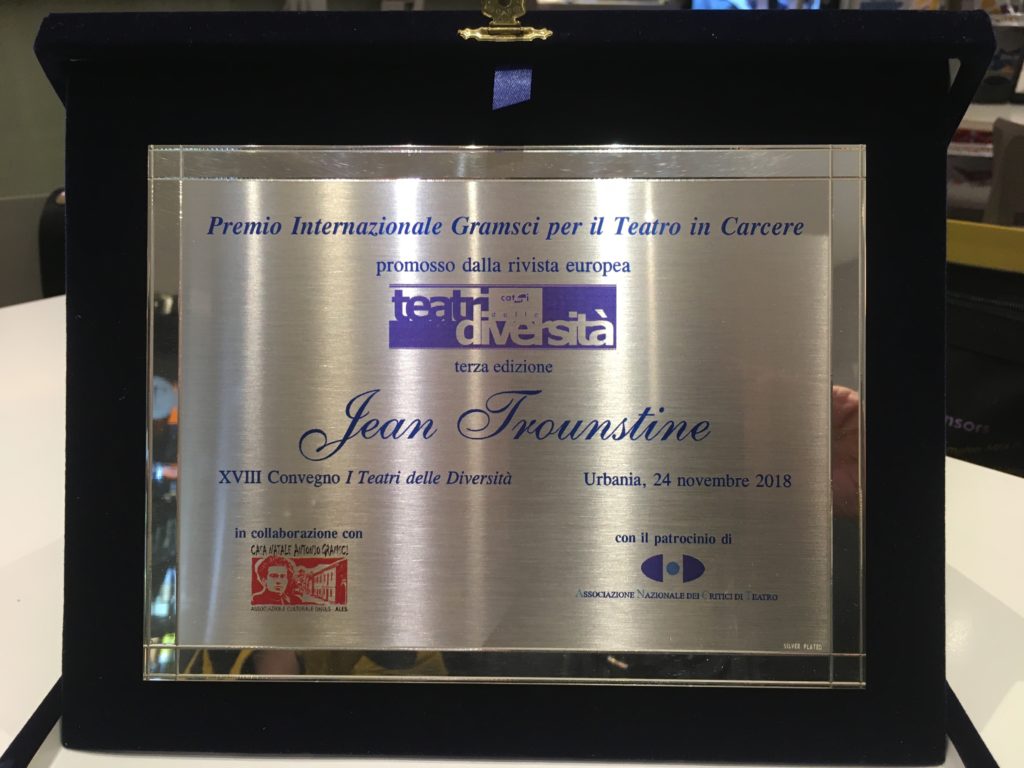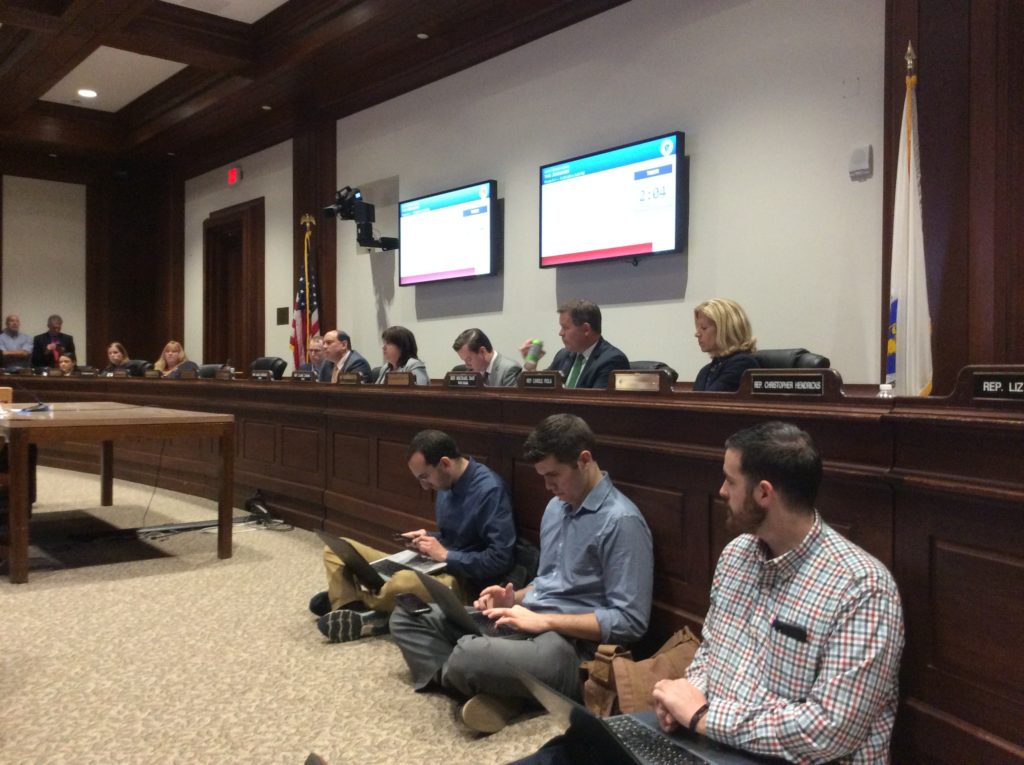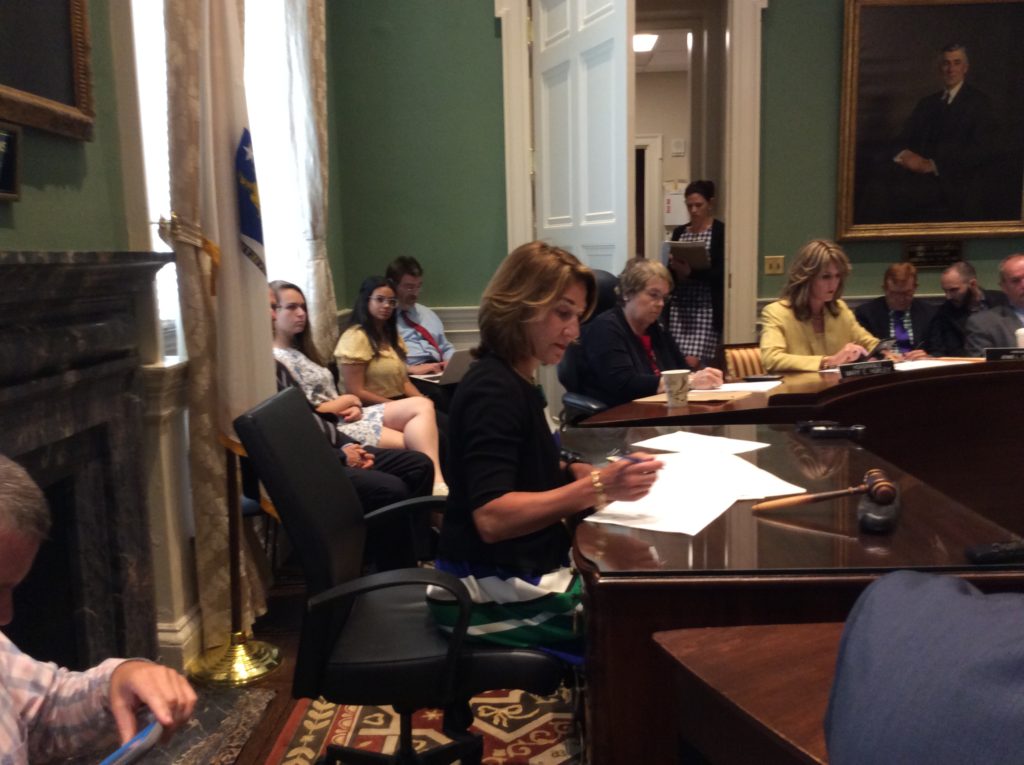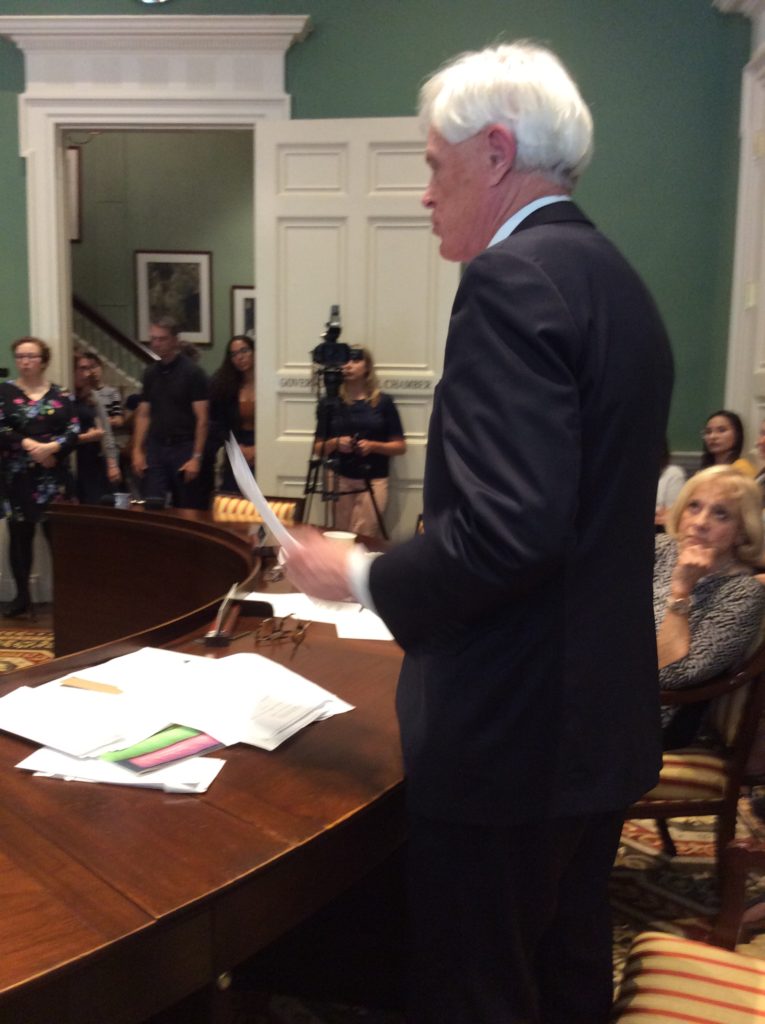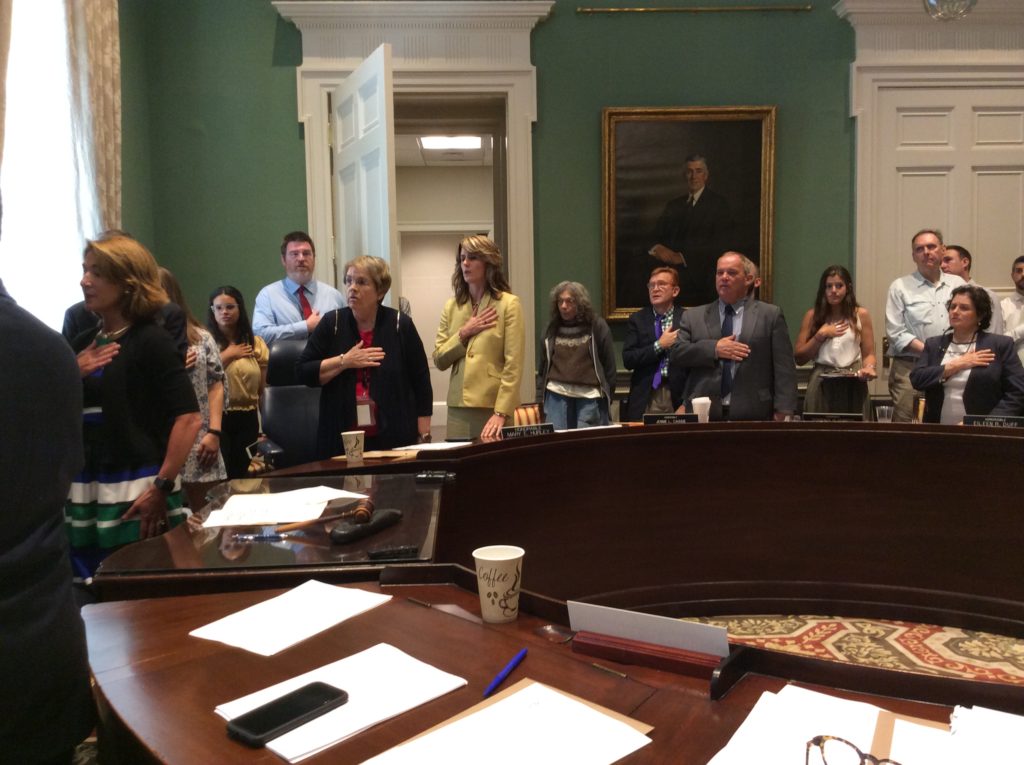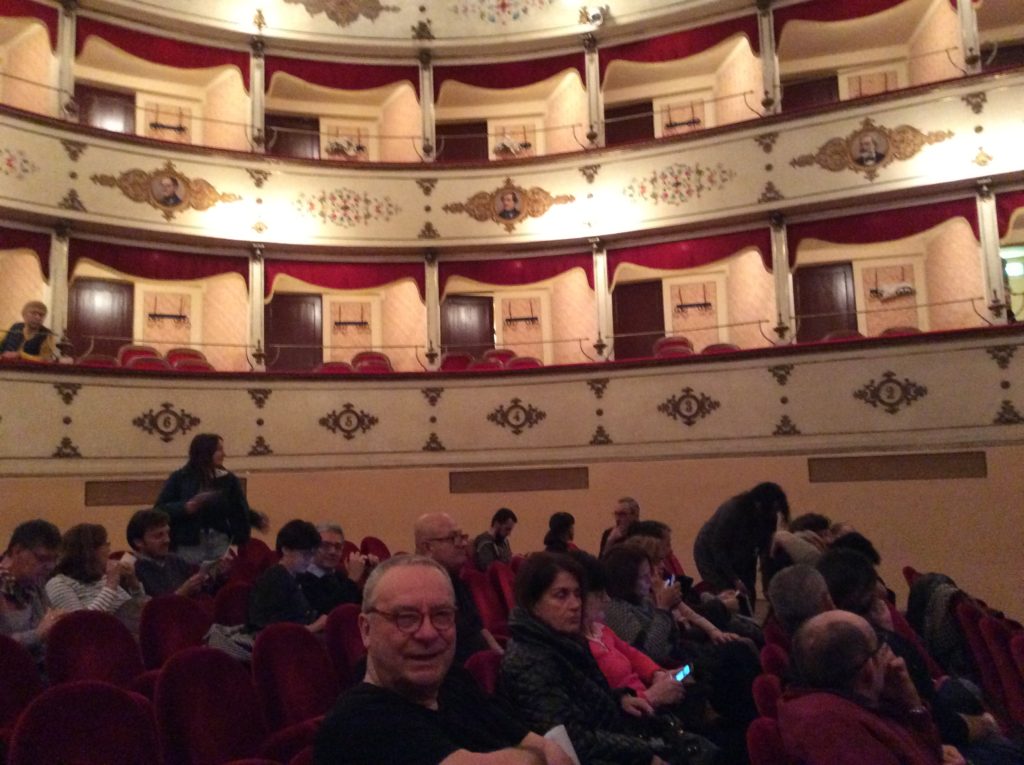 Pictured above is a theatre in Urbania where the XX International Conference presented a performance. In the front, Walter Valeri, poet, dramaturg, translator, and cultural icon.
Pictured above is a theatre in Urbania where the XX International Conference presented a performance. In the front, Walter Valeri, poet, dramaturg, translator, and cultural icon.
Last week, I had an experience that really can only be described as life-changing. I received an award for my 30+ years of work doing theatre in prison and literature seminars with people on probation. And if that wasn’t enough, I received this award, the International Gramsci Award in Italy. I received it at this conference, The Theatres of Diversity, promoted by the European magazine Catarsi-Theaters of Diversity. The conference’s title “Emancipate oneself from subordination: theatre, sport and literature in prison” recalls a key concept in the thought of Antonio Gramsci, to whom the International Prize for Theatre in Prison is dedicated.
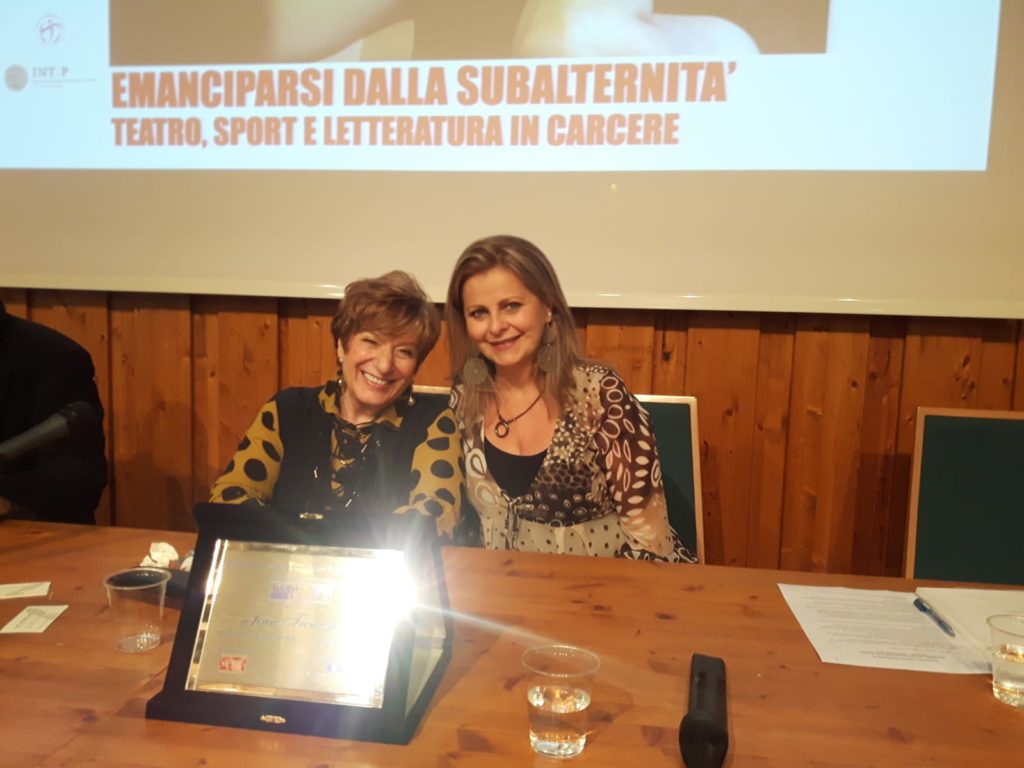 The award presented by Rosella Persi, Professor at the Carlo Bo University of Urbino)
The award presented by Rosella Persi, Professor at the Carlo Bo University of Urbino)
The award was presented along side people who are doing amazing work in prisons all over the world. And the artist who invited me is Vito Minoia pictured below at one of the many meals we had. Vito is the man directly under the picture on the wall and he is the president of the International University Theater Association and directs many vibrant theatre programs in prison. Walter is to his left, and he was gracious enough to be my guide as well as translator. He also wrote about my work here. Formerly incarcerated actress Luminiza Georghisor and her director, Michalis Traitsis, from the female prison of Giudecca in Venice, round out the table.
There was a production the first night in Urbania of a performance about rugby, physical contact and prison. It was presented by Aenigma University Theatre and the theatre company in prison and below is a photo from the production which was, of course in Italian, and featured prisoners who had come to Urbania from prison to perform. I was told the guards were behind the curtain and would later accompany the performers back to prison–but imagine such a thing, here? There was also a talk-back with the audience.
You can find a video here with English subtitles discussing the making of that work.
There was this enchanting couple, Rhoda and Remo who work with marionettes with men in prison.They are teaching men in a high security prison to craft paper maché heads and create characters. The goal, a show!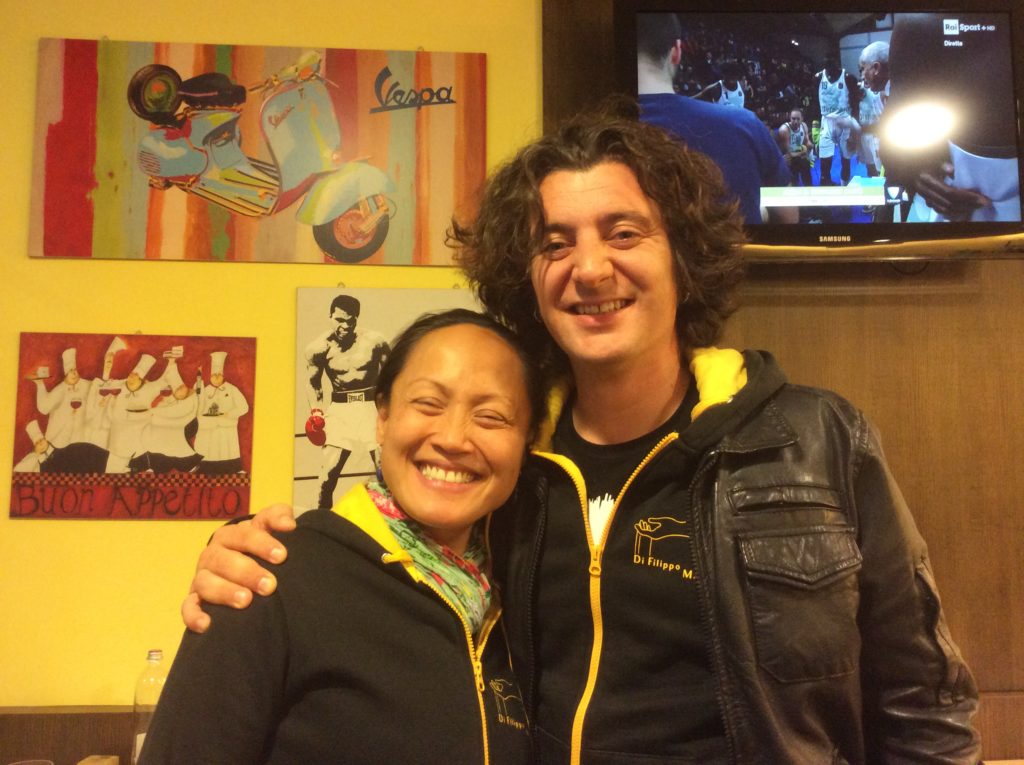
There was a production of Prometheus Bound that was haunting: Pictured below is Lumineza and the others are students from the University of Ferrara who performed in the female prison near Venice.There was also the amazing Fra.Stefano Luca who works with refugees in Lebanon and Camaroon using theatre, and Michelina Capato Sartore whose dance theatre work is breathtaking.
If you want to get a feel for theatre in prison in Italy, watch this video and be transported:
PASSI SOSPESI 2015-16 SHORT CUT C.R. FEMMINILE DI GIUDECCA, VENEZIA (english subtitles) from balamos teatro on Vimeo.
And then, as if my week couldn’t get better, we went to Pesaro where I was able to run Changing Lives Through Literature (CLTL) workshops in Pesaro Prison. Changing Lives is a program for those on probation in the state but the team concept and a democratic classroom began in Massachusetts with a judge (Judge Robert Kane), a professor (Professor Robert Waxler), and a probation officer (Wayne St. Pierre). It began in 1991 and there is much written about it. We are now piloting it inside the walls in Massachusetts (although CLTL has been done inside pirsons in England for years.) And remarkably, the discussions with prisoners are even more intense than the dicussions with people on probation. The idea is always that through characters and story, we can begin to rethink our lives.
First the countryside-from Urbania to Pesaro, what could be more beautiful?
We also made a stop at the walled city of Urbino.
The prison itself had a café for guards, the same kind of cafe where Italians get espresso on the highway. A café! Prisoners, students, and Italian educators came to my workshops and we discussed pieces of literature for hours with a coffee break and many many moments of joy and insight.I am sure the prison where I did not go was a “prison”– however prisoners who came to my workshop wore their own clothes. And the feel was distinctly less harsh. 
Cars can be parked overnight in front of the prison.
Here is another amazing video from Vito Minoia and the International Theatre in Prison network which includes some of my speech and other wonderful excerpts from theatre behind bars:
I came away from this week filled with images and art and the kind of inspiration that I hope will show up as I seek to teach and touch as many people as possible in my next 30 years.







